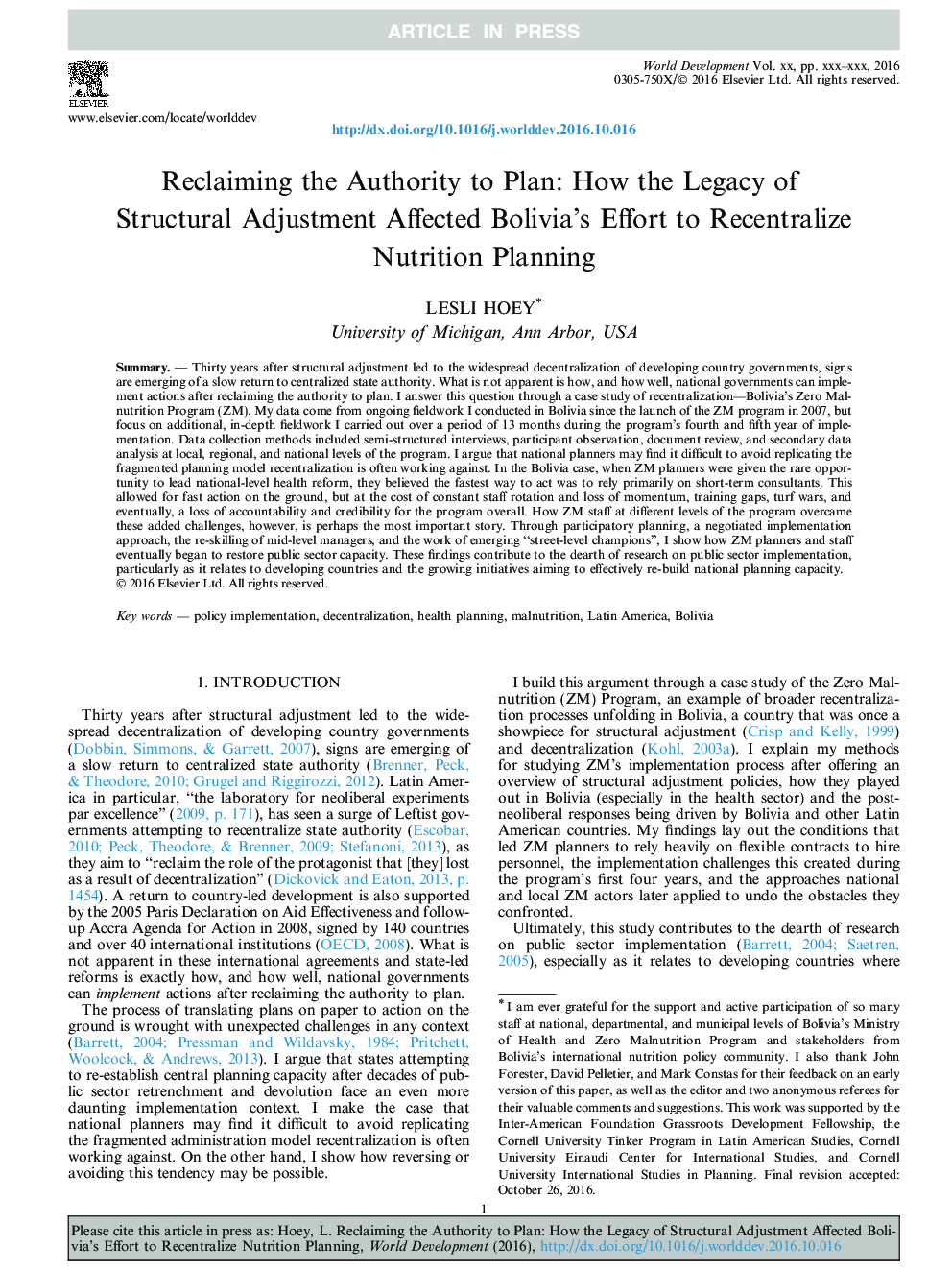| کد مقاله | کد نشریه | سال انتشار | مقاله انگلیسی | نسخه تمام متن |
|---|---|---|---|---|
| 5105329 | 1481127 | 2017 | 13 صفحه PDF | دانلود رایگان |
عنوان انگلیسی مقاله ISI
Reclaiming the Authority to Plan: How the Legacy of Structural Adjustment Affected Bolivia's Effort to Recentralize Nutrition Planning
ترجمه فارسی عنوان
احیای مجلس برای برنامه ریزی: چگونه میراث تنظیم ساختاری تحت تأثیر بولیوی برای برنامه ریزی تغذیه ای قرار گرفت؟
دانلود مقاله + سفارش ترجمه
دانلود مقاله ISI انگلیسی
رایگان برای ایرانیان
کلمات کلیدی
اجرای سیاست، تمرکززدایی، برنامه ریزی بهداشتی سوء تغذیه، آمریکای لاتین، بولیوی،
موضوعات مرتبط
علوم انسانی و اجتماعی
اقتصاد، اقتصادسنجی و امور مالی
اقتصاد و اقتصادسنجی
چکیده انگلیسی
Thirty years after structural adjustment led to the widespread decentralization of developing country governments, signs are emerging of a slow return to centralized state authority. What is not apparent is how, and how well, national governments can implement actions after reclaiming the authority to plan. I answer this question through a case study of recentralization-Bolivia's Zero Malnutrition Program (ZM). My data come from ongoing fieldwork I conducted in Bolivia since the launch of the ZM program in 2007, but focus on additional, in-depth fieldwork I carried out over a period of 13Â months during the program's fourth and fifth year of implementation. Data collection methods included semi-structured interviews, participant observation, document review, and secondary data analysis at local, regional, and national levels of the program. I argue that national planners may find it difficult to avoid replicating the fragmented planning model recentralization is often working against. In the Bolivia case, when ZM planners were given the rare opportunity to lead national-level health reform, they believed the fastest way to act was to rely primarily on short-term consultants. This allowed for fast action on the ground, but at the cost of constant staff rotation and loss of momentum, training gaps, turf wars, and eventually, a loss of accountability and credibility for the program overall. How ZM staff at different levels of the program overcame these added challenges, however, is perhaps the most important story. Through participatory planning, a negotiated implementation approach, the re-skilling of mid-level managers, and the work of emerging “street-level champions”, I show how ZM planners and staff eventually began to restore public sector capacity. These findings contribute to the dearth of research on public sector implementation, particularly as it relates to developing countries and the growing initiatives aiming to effectively re-build national planning capacity.
ناشر
Database: Elsevier - ScienceDirect (ساینس دایرکت)
Journal: World Development - Volume 91, March 2017, Pages 100-112
Journal: World Development - Volume 91, March 2017, Pages 100-112
نویسندگان
Lesli Hoey,
